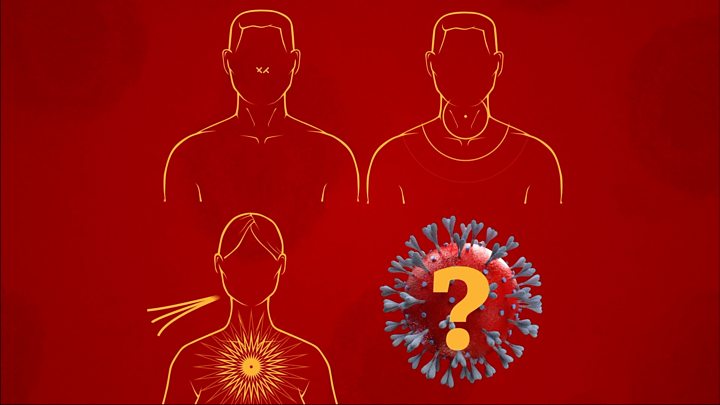Here are five things you need to know about the coronavirus pandemic this Monday morning. We'll have another update for you at 18:00 BST.
1. UK 'heading in the wrong direction'
The government's most senior health advisers, Prof Chris Whitty and Sir Patrick Vallance, will use a televised briefing later to warn the UK is at a "critical point" and facing a "very challenging winter". The hope is they will better convey the seriousness of the situation than politicians. Ministers have spent the weekend considering how to tackle the surge in infections. At least 13.5 million people are already living in areas with tighter local restrictions, with suggestions Londoners could be next. Would a nationwide mini-lockdown, or "circuit break" help? Or is a better alternative that we simply learn to live with the virus?
2. Labour criticise pandemic response
Labour leader Sir Keir Starmer says he will support any new measures, but warned failings in the test and trace system are undermining efforts to combat the surge. His shadow chancellor will use a speech to party members later to call for a jobs recovery scheme targeted at hardest-hit sectors, like hospitality. Anneliese Dodds will also accuse the Conservatives of mismanaging public funds in response to the crisis - for example, paying furlough money to firms who would have retained staff anyway. According to HMRC this morning, UK firms have voluntarily returned more than £215m paid out by the scheme.
Image copyright Getty Images Image caption Anneliese Dodds will address Labour's party conference - held virtually this year3. Schools missing pupils
About one in every 20 children in England is out of school because of issues linked to the pandemic, according to the children's commissioner. Anne Longfield said the number of schools who'd sent pupils home because of a Covid-19 case was still very small, but there were many other children, including those with special needs or emotional problems, who had not yet returned. She praised the heroic efforts of teachers and other staff who made reopening possible, but warned there was a danger their goodwill - and that of parents - would be lost if testing troubles meant separating colds from Covid couldn't be done quickly.

Media playback is unsupported on your device
4. Train deal struck
The government has agreed new emergency deals with train companies, meaning the taxpayer will continue to cover any losses on the railways, caused by low passenger numbers, for another 18 months. So far, those losses have run to about £3.5bn. During that 18-month period, ministers hope to carry out broader reforms to Britain's railways, including potentially a shift to a concessions-based system. Under that, train companies are paid a fixed fee to run services, rather than face the risk of big wins or losses under a franchise model.
Image copyright PA5. Selfies, but no group shots
The Taj Mahal has reopened its doors to visitors after six months. The 17th-Century marble mausoleum was closed when India went into a stringent lockdown, having previously welcomed as many as 70,000 people every day. It will now allow only 5,000 visitors daily and enforce Covid-19 safety measures. The country has the second-highest confirmed case count in the world, but the government is opening up - workplaces, public transport, eateries, gyms - to try to repair the battered economy.
Image copyright Getty Images Image caption The Taj Mahal is located in the northern Indian city of AgraAnd don't forget...
Find more information, advice and guides on our coronavirus page.
More than two million students are about to go off to UK universities, but who can they socialise with when they get there? Find out the rules.
What questions do you have about coronavirus?
In some cases, your question will be published, displaying your name, age and location as you provide it, unless you state otherwise. Your contact details will never be published. Please ensure you have read our terms & conditions and privacy policy.
Use this form to ask your question:

 5 years ago
811
5 years ago
811 

